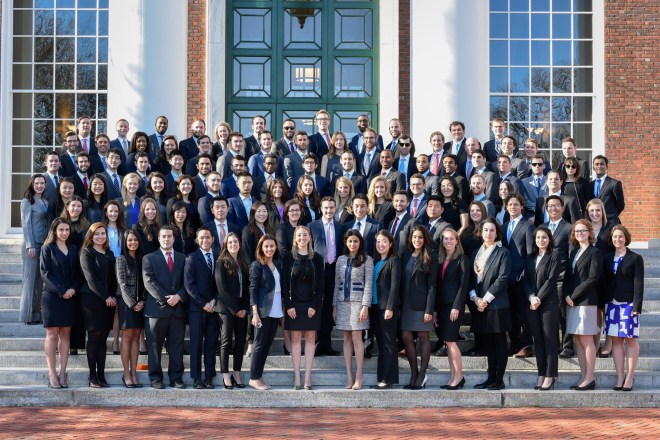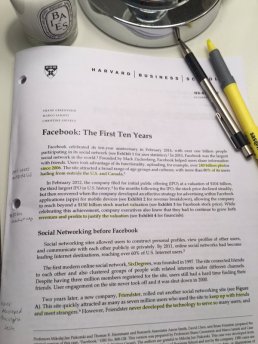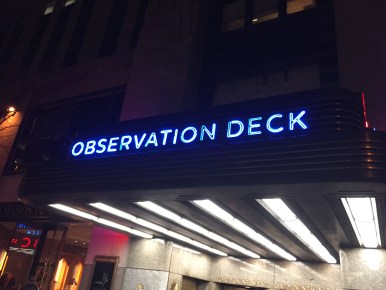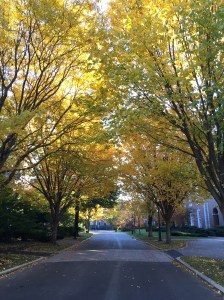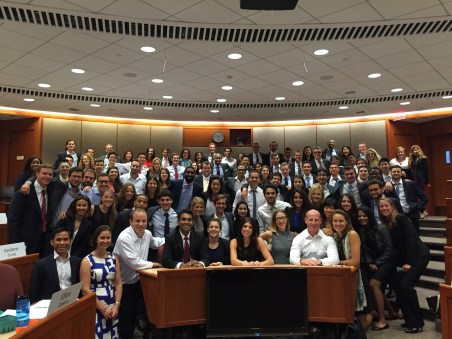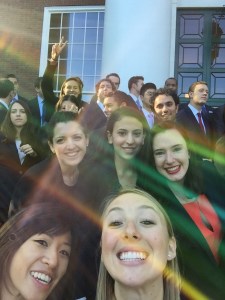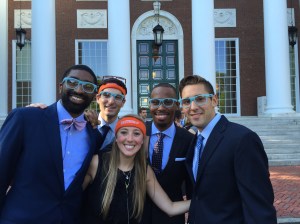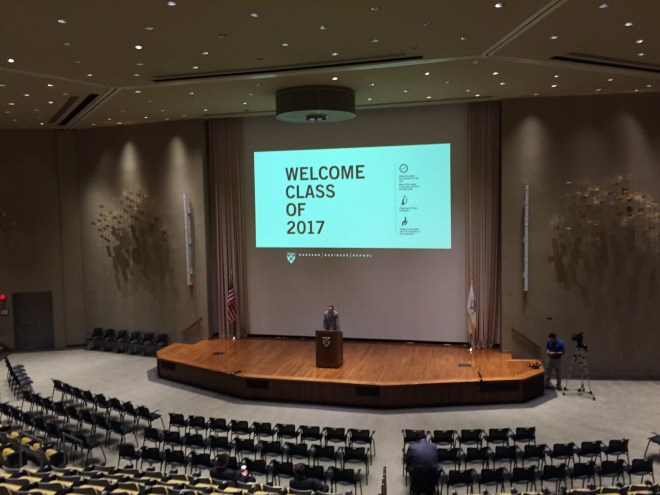
As I pack up for school after a fantastic summer, I see many of my friends starting at HBS in the fall have already begun arriving on campus (hi, Lisa!) I remember how overwhelming the start of business school was last year and wanted to impart unsolicited advice on those beginning the journey.
I remember receiving lots of advice about how to navigate the beginning of the first year from incoming second year students, graduates, friends who hadn’t attended business school and everything in between. I found most of it overwhelming and some of it helpful, and wanted to consolidate the best of the advice. They span the practical to the theoretical, and help with the mindset adjustment that derives from being business school.
I am trying to keep this as general as possible so this can be applicable to first year MBAs beyond the HBS community, but some of this might be HBS-specific.
Best of luck!
- Come up with a pithy, memorable fun-fact about yourself. This becomes relevant not only on your first day in section when everyone has to introduce themselves, but also as you meet your many classmates.
- Use one 5-subject notebook for your notes for every class, rather than 5 1-subject notebooks. It’s an incredibly random tidbit that someone imparted upon me and I found it extremely helpful. The schedule isn’t consistent and it’s annoying to have to remember to carry distinct notebooks around. Instead, easiest to have everything consolidated under one umbrella.
- Say no to one thing on your calendar every day. You can’t do everything and you’ll find yourself overloaded quickly.
- Don’t ignore the people outside of the bubble or the things you love to do. Call your parents. Read fiction. Go to the gym. Find time for yourself – this comes up often but it’s really important as you’re forming your identity in a new setting to maintain the things that make you who you are.
- Don’t go overboard on signing up for clubs. It costs money for each of them and you’ll realize how little time you have in the first year to participate. Figure out what you really care about and go deep. The reasons to get involved are 1. if you’re switching industries and want to use it as a launchpad to make connections or 2. as a fun, social experience.
- Spend time getting to know your section-mates. Attend small group dinners, sign up for offsite activities with one another, and invest in those relationships. Of course, make time to branch out when the time is right, but in the first few months it’s most manageable and effective to build deep connections with the people you spend 10 hours a day.
- Keep an open mind about everyone and everything. The only way this experience works is if you participate in earnest and leave yourself open to meeting people from different backgrounds and industries. Everyone is there for a reason has an interesting story to tell. You don’t have to be friends with every single person, but be open to getting to know as many people as possible. And most important, be an ally to people. If you’re outgoing, be friendly and extend a hand to those who might be more timid.
- Come prepared. Seriously – you’ve worked this hard to get there, and there were 10 other people vying for that spot. Make it count. Even if they seem casual about it, your classmates will have done all of the requisite work beforehand. You don’t want to be the only one with a disadvantage because the most important reputation you can build is with your peers. Prepared also means being punctual.
- Don’t lose touch with your former industry and your former colleagues. Read applicable publications and materials to stay abreast of what’s going on in your universe. Email former colleagues to find out what’s happening at the office. It’ll give you a sense of grounding when you feel disoriented in your new environment. BUT: If you’re looking to switch careers or industries – take the time to start reading publications in that industry.
- Have fun! Smile. It goes by so quickly.

